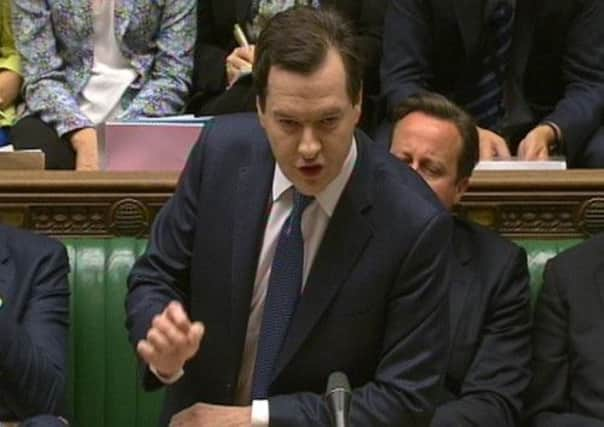John McLaren: Review signals leap into unknown


This has an important knock-on effect for the Scottish political scene as it means that some of the most difficult decisions to come at the back end of the eight years of fiscal consolidation now expected will be unanswered when Scots vote in the independence referendum.
As a result, while independence will remain a bit of a leap in the dark, so too will staying in the Union, as where future major public service cuts and restructurings or tax rises (often popular after an election) will emerge is essentially unknown.
Advertisement
Hide AdAdvertisement
Hide AdThis easing up on fiscal consolidation prior to the election is reflected in the fact that cuts for the current Spending Review have not proven hard to find, as seen through no use of the Star Chamber to chase recalcitrant departments, as well as through much larger than expected departmental budget underspends.
In terms of yesterday’s decisions, we did not learn very much new as this was an exercise in re-emphasising the major strategic decisions already made.
The protection of schools, the NHS, international development and defence has led to these now accounting for half of all day-to-day spending by UK government departments.
This in turn means that all other departments have to take twice the pain. Hence, instead of an equal 2.7 per cent cut across the board, all non-protected departments’ day-to-day spending is being cut by between 5-10 per cent in 2015-16.
Scotland has seen a relatively small fall in this area, down 1.5 per cent, as the Barnett formula consequences emerge as a mixture of the settlements seen in the protected areas and the unprotected areas.
On the capital spend side, the Chancellor made much of his boost for infrastructure spend and this is reflected in more money available to Scotland in this area. However, overall this boost is more than offset by the cut to day-to-day spending.
After initial wage and employment protection, public-sector workers are now bearing the brunt of the fiscal consolidation, with the UK government intent on another year of pay awards at well under inflation, increased emphasis on reforming, ie reducing, progression payment gains and a further fall in public-sector staffing levels.
If Scotland does not act likewise then it will need to find further cuts to spending on the non-wages, procurement, side.
Advertisement
Hide AdAdvertisement
Hide AdThis then was a Spending Review in name alone, as no fundamental spending realignments have been made.
Such a one-year contingency plan means that we will have to wait until after the next election to more fully understand the future direction of travel.
This in turn will be highly dependent on whether the economy has returned to growth.
If it has not, all bets are off.
• John McLaren is an economist with the Centre for Public Policy for Regions.